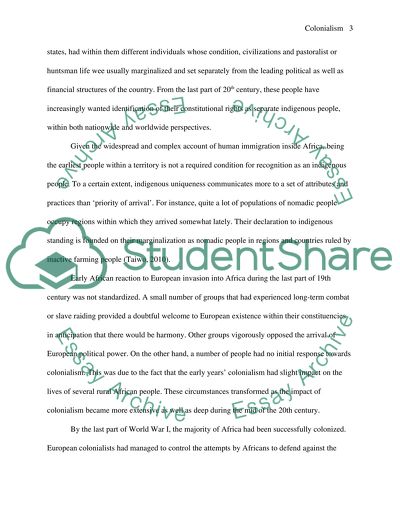Cite this document
(“Colonialism in 1880-1900 Essay Example | Topics and Well Written Essays - 750 words”, n.d.)
Retrieved from https://studentshare.org/history/1425073-colonialism
Retrieved from https://studentshare.org/history/1425073-colonialism
(Colonialism in 1880-1900 Essay Example | Topics and Well Written Essays - 750 Words)
https://studentshare.org/history/1425073-colonialism.
https://studentshare.org/history/1425073-colonialism.
“Colonialism in 1880-1900 Essay Example | Topics and Well Written Essays - 750 Words”, n.d. https://studentshare.org/history/1425073-colonialism.


